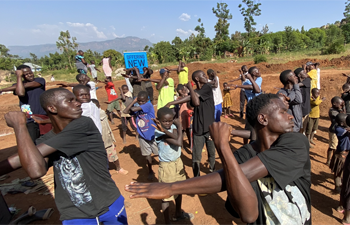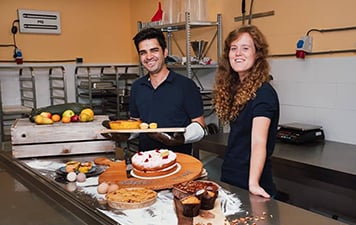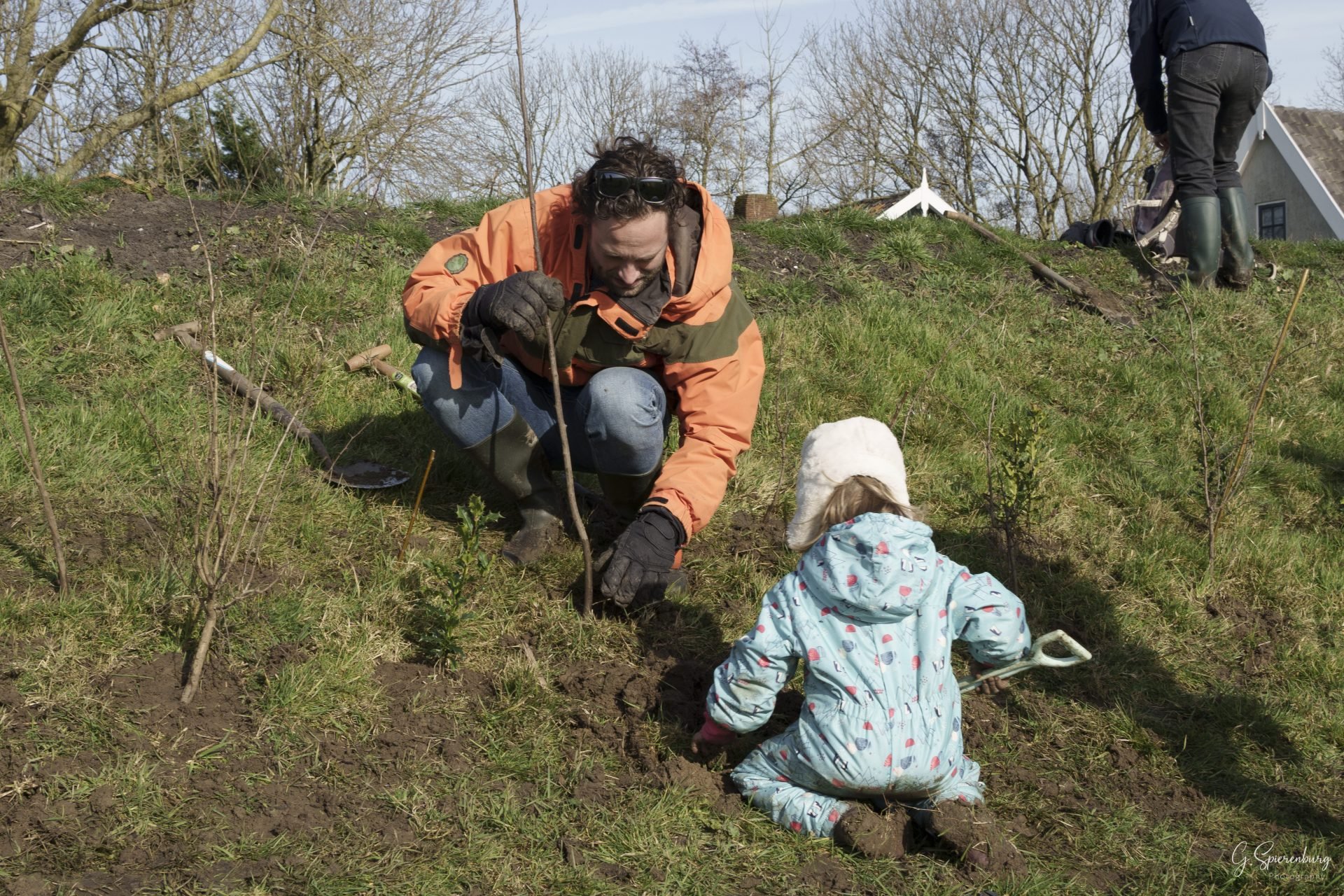De Clique uses bicycle couriers to collect waste such as corks, coffee grounds, bread and orange peel from restaurants and businesses in Utrecht. They then process this waste and use it to make new products, such as beer and soap, and even to grow oyster mushrooms. The restaurants and businesses where the waste was collected sell these new products, completing the circle.
Unused waste
Many catering establishments don’t sort their waste but simply incinerate it. Sometimes it gets processed abroad, but that causes other problems. It’s estimated that 5.3 tonnes of waste per catering business a year could be processed more effectively.
De Clique’s founding team, consisting of Anja Cheriakova, Bas van Abel, Steven Keulemans, Elisa van Dam and Jurjen Groot, wants to process hotel and catering waste in a high-quality way. That means reusing as much as possible, as locally as possible, with the least negative impact. The company collects waste using electric cargo bikes, coaches catering staff, and advises on waste sorting.
De Clique stores the waste locally and processes part of it. Their partner companies use the waste to make new products. For example, PeelPioneers – also a DOEN partner – turns orange peel into pulp that’s made into cattle feed, and oil that’s used in cosmetics and beer. And Wilder Land, another DOEN partner, makes tea from herbs De Clique grows in compost made out of organic waste.
A scalable model
De Clique started operating in April 2019. Meanwhile, more than 20 catering outlets of the Hoog Chaterijne shopping centre joining in. These catering businesses sell products produced via De Clique through their web shops. The company is also targeting new customers, such as health care institutions, offices and supermarkets.
Sustainable impact
Working with De Clique brings businesses immediate benefits, from help with setting up waste sorting and training of staff to CO2 reduction through the use of sustainable transport and the creation of new products from waste. For example, when orange peel gets processed into cattle feed, soya beans don't have to be imported from Brazil. Sorting also makes waste streams cleaner.
The circular transition
DOEN’s support in 2019 was De Clique’s first major funding. This gave them the breathing space and working capital to establish their value proposition, undergo initial growth, and obtain further funding. “For these first years, DOEN’s support was necessary to make De Clique viable,” says co-founder Elisa van Dam. During the first lockdown in 2020, DOEN’s Support Facility provided funding to bridge a delay in an investment round.
In addition to financial support, DOEN also made its network available. For example, we introduced De Clique to Tekkoo, which helps with matters such as logistics.
You will soon read the complete impact case about De Clique, which was made in collaboration with Avance Impact, in the DOEN annual report.


